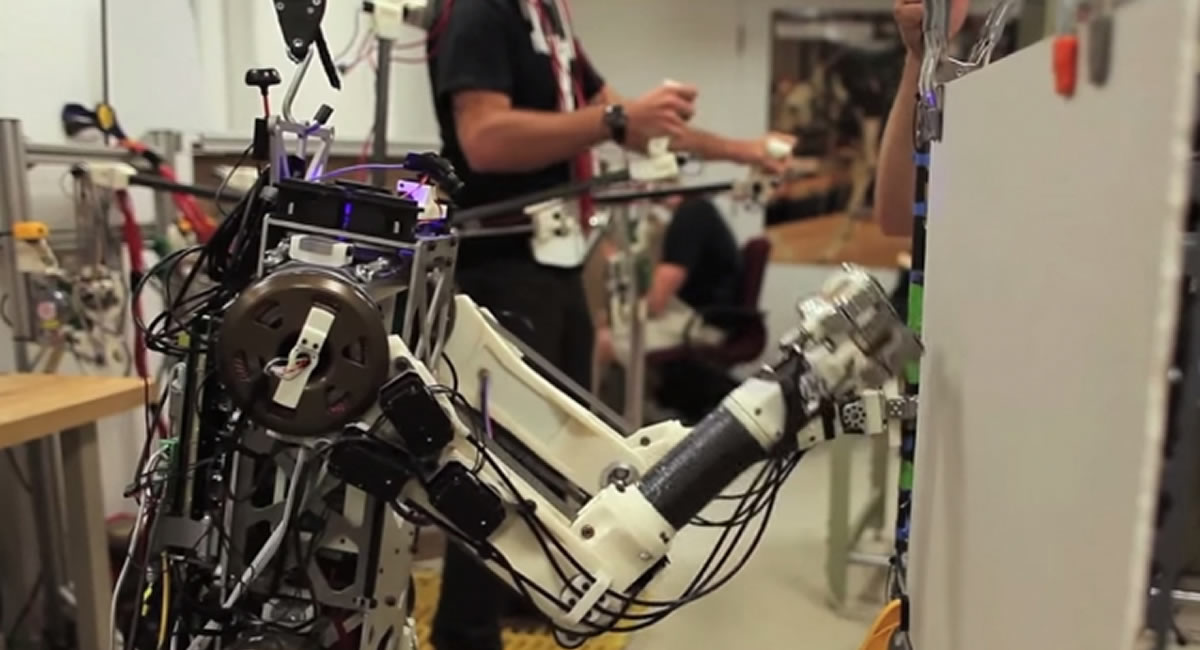
MIT reveal Hermes, the remotely operated bipedal robot that will aid in disaster response.
Adam Milton-Barker | Aug 14, 2015 | Drones and Robotics | 4988There has been a lot of bad press in the media recently about robotics/artificial intelligence and just where we are heading with it all, but amongst all of that is the good that these technologies are doing that is going fairly unnoticed as it is drowned by the negative side of the technologies. One amazing example of the good that robotics are being developed to accomplish has recently been announced from the geniuses at MIT in the states. Hermes is a revolutionary new type of bipedal robot that is controlled entirely by a remote human and not an artificial intelligence program. One of the very cool features of this advanced new form of bipedal robot is that not only does the human control the robot, but they also feel its pain! This may seem a little strange as you would think that this feature would not be implemented to protect the remote controller from injury, but it has been implemented so that the human can counteract forces that thrust upon the robot to ensure the robot stays upright and balanced and does not fall over on impact. The extent of this technology does not end there, the team at MIT have designed the robot to use one of the most popular forms of technology around at this time, virtual reality! Through the use of VR the human can see from the perspective of the robot, helping it maneuver successfully and complete tasks with precision and efficiency. And still the wonders of this technology continue, the robot doesn't mimic the actions of the human, but it learns them and uses what it learns to adjust its algorithms so that it can progress, ultimately ending the requirement for a remote human controller as the robot will have learnt how to function of its own accord. One of the most obvious uses for this technology at the moment would be disaster response, as with most robots. With more strength than a human the bipedal robot will be perfect for shifting rubble and maneuvering around dangerous obstacles that would endanger human life or put them at risk of injury. There are also many other uses that this could be used for such as factory work, construction and various other jobs. This is how I envision the future of robotics and even A.I, in my eyes they are not being programmed to destroy or replace humans in the working environment, but to enhance our skill sets, make us more efficient and reduce risks that would normally endanger us. I look forward to seeing more about this project and you can check out the video linked on this page to see the bipedal robot in action.
